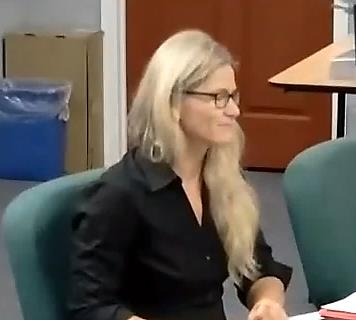Riley; Webb win local races; Molinaro not conceding
by Robert Lynch; November 5, 2024; Updated November 6, 2024
Enfield voters Election Night did something that they refused to do just three years earlier: They extended the length of future terms for three Enfield Town offices to twice their current length.

Unofficial, and slightly incomplete, election returns released Tuesday night indicate voter approval for a trio of renewed ballot initiatives, changes submitted by the Enfield Town Board this summer. They would lengthen future terms for Town Supervisor, Highway Superintendent, and Town Clerk from two years to four.
In 2021, the Town Board attempted a similar change, only to see voters reject the proposals.
This year’s voter endorsement of the change varied strikingly depending upon the office involved.
Extending the terms for Supervisor passed just barely, 809 votes in support, 783 votes in opposition, a mere 26 vote margin of victory.
By contrast, extending the term for Town Clerk won by a landslide; 920 votes (57.5%) in support, 681 votes (42.5%) in opposition, a 239 vote margin.
For Highway Superintendent, 875 voters (54.5%) supported longer terms, 732 voters (45.5 %) opposed the extension.
The closeness of the Supervisor’s referendum matters. Uncounted absentee and affidavit ballots, yet to be opened, could alter the ballot measure’s outcome.
A spokesperson for the Tompkins County Board of Elections reported Wednesday afternoon that as many as 58 absentee ballots, ballots sent to Enfield voters in recent weeks, had yet to be received. In addition, the validity of 36 affidavit ballots has yet to be determined. Thus, potentially as many as 94 Enfield votes could be added to the “win” or “lose” column of any unofficial total released Tuesday.
The elections board spokesperson said that while the absentee ballots have to have been postmarked by Tuesday, Election Day, their receipt by the Board of Elections as late as November 12th could qualify them for inclusion in the final tally.

None of the 94 absentee or affidavit ballots will be counted until November 13th.
The Board of Elections’ unofficial returns, released shortly before 11 PM Election Night, included both same-day voting and early voting preferences, as well as most absentee ballots already received. Given the margins reported Tuesday night in the ballot measures affecting Enfield Town Clerk and Highway Superintendent, the additional votes still to be received and/or counted would be insufficient to impact the outcome of those referenda.
In late July, the Enfield Town Board endorsed the ballot initiatives for longer terms, considering them as a combined package. The Board’s vote then was four-to-one supporting the change, with Councilperson Robert Lynch (this writer) casting the only vote in opposition. The Board’s majority argued that longer terms would give newcomers a better ability to learn the responsibilities of their office before seeking reelection. Supporters also said it would reduce the frequency of campaigning.
Councilperson Lynch raised several arguments for his opposition. One of those arguments was that Enfield voters had expressed their preference only three years earlier, and that asking them for this, a second time in only three years questioned the electorate’s judgment and insulted voters’ intelligence.
Enfield Supervisor Stephanie Redmond, Town Clerk Mary Cornell and Highway Superintendent Barry “Buddy” Rollins each openly supported the expanded-length terms. The change that voters endorsed Tuesday would not affect Redmond’s, Cornell’s or Rollins’ current two-year terms, only the terms for those who secure their offices thereafter, positions to be decided in the 2025 elections.
Because of new state laws adopted in 2023, laws that will transition most local elections from odd-numbered to even-numbered years, candidates elected to the three Enfield offices subject of this year’s Enfield ballot measures would serve three-year, not four-year terms when their initial terms commence in January 2026. But the terms would change to four-year terms in election cycles thereafter.
****
Tompkins’ Blue Wall: Give the overwhelming Democratic dominance of Tompkins County’s electorate credit for propelling local Democratic candidates for Congress and State Senate to apparent victory.
First term Democratic incumbent Lea Webb defeated Lansing County Legislator Mike Sigler in the 52nd District State Senate race. Senator Webb’s district includes all of Tompkins County. A similar large Democratic-friendly margin gave 19th District Congressional candidate Josh Riley the edge toward defeating Republican incumbent Congressman Marc Molinaro.
As of early Wednesday, Molinaro had refused to concede the race, given the narrowness of Riley’s win. He’d lost by only 3,678 votes, one percent.

“While we would have liked to end tonight with more votes, we want to be sure every absentee and affidavit is counted,” The Mid-Hudson News reports Molinaro as stating Election Night. “We’re so close that we’re going to conclude tonight and wait for those affidavit and absentee ballots counted.” Spectrum News, as reported by The Ithaca Voice, recorded Molinaro as stating.
The 19th Congressional District comprises 11 counties in whole or in part. The district encompasses territory extending from Enfield on the west to the Massachusetts border on the east. New York State Board of Elections data, compiled Wednesday, gave Democrat Riley majorities in four of those counties, Republican Molinaro the edge in the remaining seven.
By far, Tompkins County gave Riley the largest cushion of victory. Of those choosing one candidate or the other, Riley won support from more than 74 per cent of Tompkins County voters (31,958 votes), compared to Molinaro’s 25.7 per cent (11,043 votes) among the Tompkins electorate.
Consider, by contrast, the rural parts of neighboring Cortland County that are included in the restructured 19th District. In that part of our adjacent county, Republican Molinaro did his best of anywhere, securing 63 per cent of the vote.
Josh Riley claimed majorities in Broome, Columbia, and Ulster counties, as well as in Tompkins. But his Binghamton-based Broome County margin was far lower than it was in Tompkins. In Broome County, Riley secured just 924 votes more than did incumbent Molinaro.
State Senate: Tompkins County legislator Mike Sigler thought he had the issues and the momentum to oust one-term Democratic State Senator Lea Webb from office. He didn’t. In fact, Sigler lost badly.
While Republican Sigler fared competitively in Cortland County and that portion of Broome County included in the 52nd Senate District, he got crushed in deep-blue Tompkins County.
Districtwide, Lea Webb prevailed with more than 57 per cent of those expressing a preference for State Senate. Sigler earned only 42.7 per cent support. Webb’s margin of victory was 74,740 votes to Sigler’s 55,690.
In Tompkins County, Webb secured 30,891 votes (72.3%) to Sigler’s mere 11,820 (27.8%).
Tuesday night, Sigler conceded to incumbent Webb, expressing grace, but also words of caution.

Congratulations to Lea Webb,” Sigler released in a statement. “I wish her all the best in her next term, but it is my sincere hope that she will give serious consideration to the issues we raised during the campaign,” Sigler added. “There is clearly a huge swath of her constituents who would like to see different priorities out of Albany.”
“Unfortunately, we came up short and did not win the election,” Sigler conceded. “But that’s okay. The sun will rise tomorrow and it’ll be a wonderful day with (his wife and children), Sarah, Elena, Cora and Hazel.”
Mike Sigler actually won more votes in Cortland County than did Webb. In Cortland County Sigler earned 1,584 more votes. But he lost by almost the same number in that portion of Broome County that’s part of the 52nd District. So the margins of victory and defeat outside Tompkins County became largely a wash. Tompkins County’s mammoth Democratic majorities pulled Webb to victory.
State Assembly: Incumbent Anna Kelles ran unopposed on this year’s 125th District Assembly ballot. Her district includes Tompkins and Cortland Counties. But during the final two weeks before the election, a newfound competitor, Lindsay Lustick Garner, launched an impromptu write-in campaign. It fizzled.
District-wide, Kelles earned 41,959 votes to a write-in candidate’s (presumably Garner’s) 1,100 votes. In fact, far more voters (13,724) simply left the State Assembly line blank.
Almost all of Garner’s presumed support came from Tompkins County, where her sudden candidacy gained more press. In Cortland County, only 62 write-in votes were cast for Assembly.
As in recent past elections, Tompkins County maintained its roughly seven-to-three split between Democrat-to Republican votes. In fact, the partisan split this year approached a margin of three-to-one.

In the race for President, Kamala Harris received more than 73 per cent of all Tompkins County votes cast. In the U.S. Senate race, Kirsten Gillibrand earned 75 per cent support.
In the presidential contest, the Election Night unofficial tallies showed 821 voters wrote in some different candidate for President, that or those persons’ names not specified.
In the Finger Lakes’ areas second, hotly-contested congressional district, State Senator John Mannion ousted one-term Republican incumbent Brandon Williams in the Syracuse-centered 22nd Congressional District. The Williams-Mannion district, now redrawn, extends as far south as the City of Cortland and southern Cayuga County.
District-wide, among voters expressing a preference, Mannion bested Williams 183,473 votes (54.1%) to 155,496 (45.9%). Mannion did slightly better than Williams in Cortland County, but lost to the incumbent in Cayuga County. Media reports indicate Williams has conceded the race.
###

